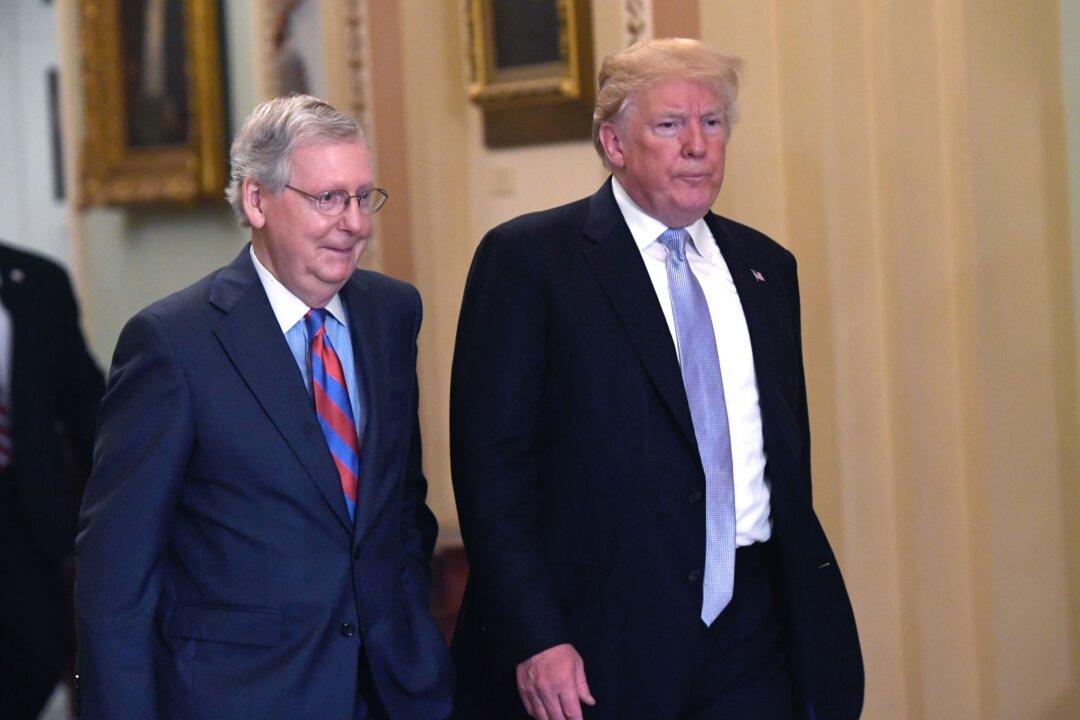President Donald Trump is urging the Senate to quickly pass a measure that would stop illicit synthetic opioid drugs such as fentanyl from being transported into the United States from China through the postal system.
“It is outrageous that Poisonous Synthetic Heroin Fentanyl comes pouring into the U.S. Postal System from China,” he wrote in an Aug. 20 Twitter post.





